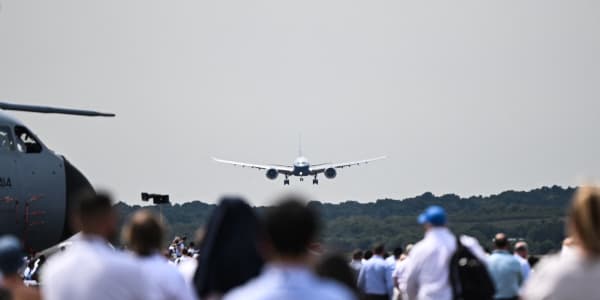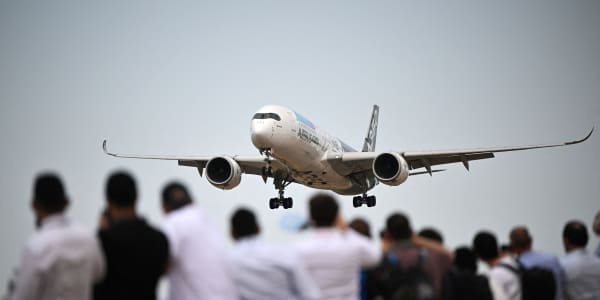The days of long flight delays due to terrible weather could soon be over with the introduction of virtual reality-style headgear for airline pilots.
The latest advancements in head-up display (HUD) – devices that project aircraft data onto the pilots visor so they don't need to look away from their normal line of vision – can create a 3D image of the view ahead. The technology means that no matter how bad the visibility is outside, pilots would still be able to land a plane.
Amid the futuristic-looking technology at the Farnborough International Airshow are simple wearable headgear aimed at improving the pilot's flying ability. Elbit Systems and Rockwell Collins are two of the major players going head to head in this space.
Read More Keeping score on airlines: More delays, mishandled luggage
Elbit Systems' Skylens look like a pair of ski goggles with several cameras placed on the plane capturing an image which is then used to create a 3D image of the view ahead.
"We believe it will help to avoid delays, reduce cancellations and improve their pilots' efficiency to take off and not have to wait for weather to improve," Yahav told CNBC at the product's debut at Farnborough.
Yahav told CNBC the company has signed a deal with a "European carrier" to be the launch customer for the products, but did not reveal which airline.
Read More Flying is just as bad as going to the DMV: Survey
Rockwell Collins' system works in a similar way, using infrared cameras placed on the plane's fuselage to create a real-time image of what is ahead of the pilot.
While Elbit Systems and Rockwell Collins both said their systems had been approved by aviation regulators, analysts said that further extensive use of the products might be difficult to achieve.
"I would say that the real trick will be to convince the regulators that those systems can allow aircraft to operate below the current visibility requirements," Wayne Plucker, director of aerospace and defense at Frost and Sullivan, told CNBC in an email.
"Both the American and European regulators have demonstrated a reluctance to certify systems for new conditions without extensive proof that there are fail safe practices and what they refer to as equivalent safety using those devices."
Follow us on Twitter: @CNBCWorld





